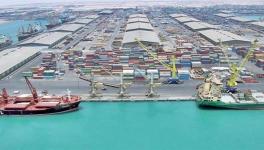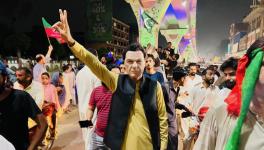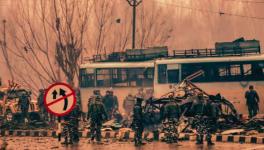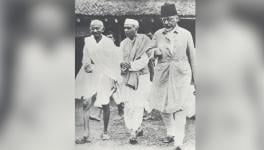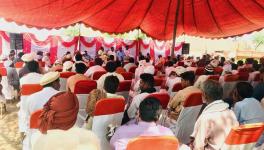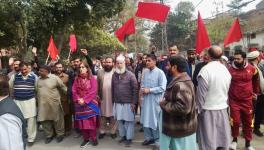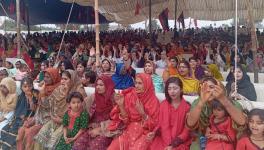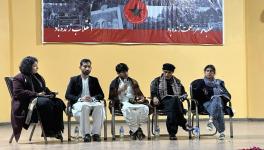Tenuous Time in South Asia
Representational use only.
In the public discourse, the hi-decibel spat between the Indian and Pakistani foreign ministers overshadowed the recent Shanghai Cooperation Organisation meeting in Goa. Pakistan Foreign Minister Bilawal Bhutto Zardari, the son of assassinated former Pakistan prime minister Benazir Bhutto, irked the hosts when he said the issue of terrorism should not be raised for ‘diplomatic point-scoring’ while addressing the SCO delegations. “The collective security of our peoples is our joint responsibility. Terrorism continues to threaten global security. Let’s not get caught up in weaponising terrorism for diplomatic point scoring”. Indian Foreign Minister Jaishankar responded, “On terrorism, Pakistan’s credibility is depleting even faster than its forex reserves.”
Within Pakistan, Zardari’s visit was interpreted as a bold move as he could have attended virtually. In this connection, with the advantage of the current developments or even the last few years, one has to understand some of the new vectors, apart from the old known factors, that are impinging on the political leadership of the two countries. Much had been made out of the Pakistani Foreign Minister’s reiteration that “unless India reviews the action it took on 5 August 2019, Pakistan is not in a position to engage bilaterally with India”.
Though Article 370 was a provision within the Indian Constitution, the de facto assumption of the Pakistani state is that with the abrogation, there will be a demographic change in Muslim-majority Jammu and Kashmir. The reality is that in over three years, a negligible number of citizens who did not have state subject certificates before 5 August 2019 have got domicile rights in Jammu and Kashmir. Actually, the feisty nature of the relations between the two for the last few years has preceded the 5 August 2019 development and is a by-product of the new context where the two countries find themselves.
India-Pakistan relations, as a component of foreign policy, have always impacted domestic politics in both countries. Pakistani Punjab is the most populous part of Pakistan, and constant, passionate societal interest in the relations were natural, particularly in relation to the Kashmir obsession. In India, the interest in India-Pakistan relations was, more or less, limited to the north and Hindi-speaking areas around Delhi. This was predicated on the fact that there was both inflow and outflow of population from these areas in 1947-48. The bulk of Muslim migration was from present-day Punjab, Uttar Pradesh, Delhi and neighbouring areas, and they settled down in present-day Pakistani Punjab and Karachi, Sindh. On the other end, Hindus and Sikhs migrated from present-day Pakistani Punjab and settled mainly in Indian Punjab, Delhi and surrounding areas. A significant number of migrants, particularly from Sindh, settled in Mumbai and Gujarat as well.
At a social and political level, Pakistan as a regular talking point was mainly a phenomenon in the north, courtesy of the large concentration of Partition migrants. Two members of such families became prime ministers in India, namely Inder Kumar Gujral and Manmohan Singh, both born in present-day Pakistani Punjab. The Bharatiya Janata Party (BJP) leadership was no exception to this trend until the advent of its current leadership. New Delhi-based BJP leaders, such as LK Advani or even KR Malkani, with Sindhi roots, are names that come immediately to mind. Many other prominent Jana Sangh faces, later in the BJP, were also from Partition migrant families who settled in Delhi from present-day Pakistani Punjab, such as former Delhi mayor Kidar Nath Sahani, former Delhi chief minister Madan Lal Khurana and prominent leader Vijay Kumar Malhotra.
Though a number of terrorist attacks by Pakistan-based groups, including on the Indian Parliament on 13 December 2001, hit the Indian mainland, apart from countless attacks in Jammu and Kashmir, including the attack on the Legislative assembly in Srinagar on 1 October 2001, the path of dialogue was considered an inevitable option. The Mumbai attack on 26 November 2008, which took place in the full glare of the media, was different and left a deep societal imprint. The scale of the attack and its victims, the arrest of a gun-wielding Pakistani national as one of the terrorists, his confession and intercepted voice exchange among terrorists as they discussed the carnage and their goals exposed the scourge of terrorism in a crystal clear manner to the pan-Indian and international audience.
The further arrest of a United States citizen and the mystery surrounding his background highlighted the transnational aspect of this threat. Attacks on military installations—Pulwama in 2019, Uri in 2016 and Pathankot in 2015—reinforced and reintroduced memories of the 2008 Mumbai attack. Little closure came as a result of the lack of transparency about the Mumbai terror case in Pakistan, and its progress in the last few years is seen as more or less dictated by the goal of removing Pakistan from the Financial Action Task Force (FATF) anti-terror financing Grey List and United States pressure.
In the same period, the political polarisation within Pakistan intensified, particularly in Pakistani Punjab, after developments related to former prime minister Imran Khan’s arrest. The current alliance partners, the Pakistan Peoples Party and Pakistan Muslim League-Nawaz (PPP and PML-N) are experienced entities when it comes to engagement with India. They know no headway can be made without the consent and blessings of the Pakistani army leadership.
Things became different with the rise of Khan, who was apparently catapulted to power with the subtle support of the Pakistani army’s leadership, as he is unwilling to do the bidding of the benefactor. Recent disclosures indicate former Pakistan Army chief Qamar Javed Bajwa was clearly at odds with him on the India policy. Khan continues to ride the populist Islamic narrative and leverage his past cricketing fame to carve out his niche. With his recent arrest and release on bail by the Supreme Court of Pakistan, he has emerged even more popular. Zardari was under major scrutiny for visiting India, and his criticism by Khan on the visit reflects that. Hence, little political capital is available for the ruling alliance to make bold moves with India when it faces a possible popular backlash over the recent developments in Pakistan.
Meanwhile, there is heightened alert within Jammu and Kashmir as the date for the G20 Working Group meeting on tourism in Srinagar approaches. Within the ambit of multilateral bodies, such meetings are held at various levels, including with the participation of junior-most bureaucrats in the system. Tourism in the context of the G20, whose core mandate is to address major issues related to the global economy, such as international financial stability, becomes important only in the context of its other goals, which were added subsequently, such as climate change mitigation and sustainable development.
In contrast to developed countries, where G20 events are held without making a splash, the same is not true for developing countries. More than 200 events are to be held across India during its much-publicised G20 presidency, of which 100 have reportedly already taken place. Two Tourism Working Group meetings have already occurred, the first in the Rann of Kutch and the other in Siliguri, West Bengal. The G20 tourism ministers’ conference in Goa is due later this year, and the three Working Groups, including one in Srinagar, will prepare a draft for the Goa declaration.
However, on the ground, there is an alarm over the Srinagar meeting. Already, in three separate fatal attacks in the Rajouri-Poonch area near the Line of Control, ten soldiers and seven civilians have been killed this year. Many Army-run schools, including in Pathankot, Punjab, have reportedly been shut as they are supposed to be vulnerable targets. Schools have been attacked by terrorists in the past in South Asia. On 16 December 2014, terrorists killed 132 students at Peshawar army school in Pakistan.
The result is obvious. In this highly charged context, which has taken deep-rooted societal roots now, it is fool’s paradise to expect any bid towards normalisation will succeed between the two of the world’s most populated countries. This is particularly true when both nuclear-armed countries go to the polls in less than a year. The leadership in both will continue to talk at each other and not talk to each other. At best, one can hope that at least behind-the-scenes institutional lines of communication will remain open to prevent a crisis-like situation in South Asia.
The writer is the author of two books on Jammu and Kashmir, including Across the LoC, Columbia University Press, 2012. The views are personal.
Get the latest reports & analysis with people's perspective on Protests, movements & deep analytical videos, discussions of the current affairs in your Telegram app. Subscribe to NewsClick's Telegram channel & get Real-Time updates on stories, as they get published on our website.









